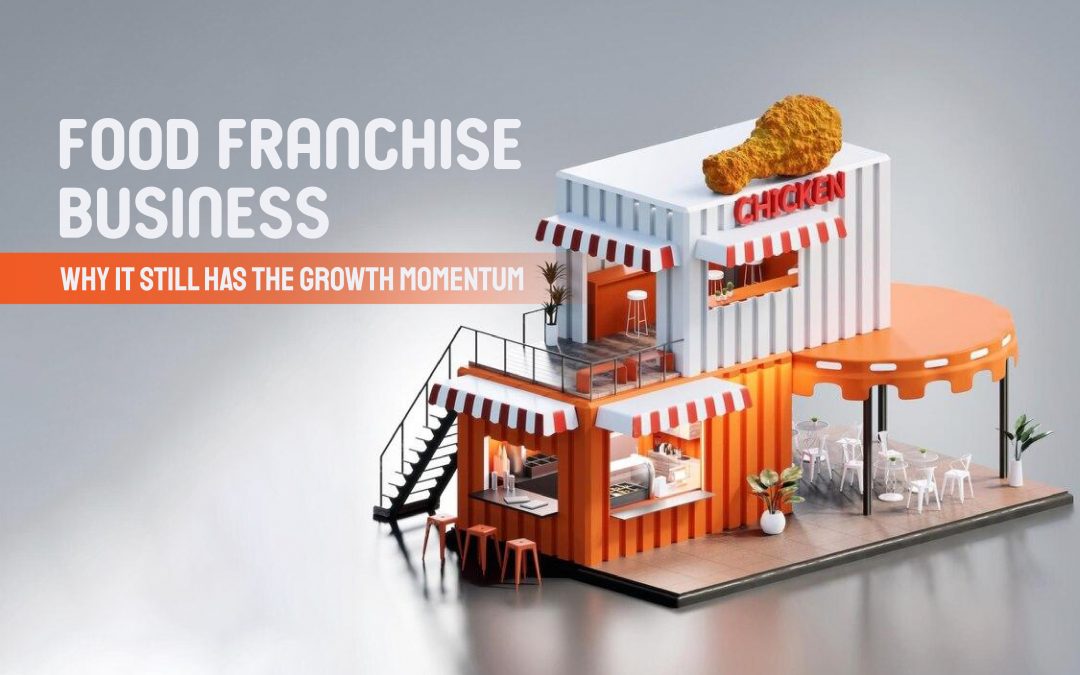In an ever-evolving business landscape, the food franchise sector continues to stand out as a robust and profitable avenue for entrepreneurs. Despite global economic fluctuations and the changing dynamics of consumer behavior, the food franchise industry remains resilient and thriving. Here’s why the food franchise business still has significant growth momentum and why it’s a compelling opportunity for aspiring business owners.
1. Proven Business Model
One of the primary reasons food franchises continue to grow is the strength of their business model. When you invest in a food franchise, you’re buying into a proven system that has been tested and refined over time. Franchises come with established brand recognition, a loyal customer base, and a clear operational plan. This reduces the risks often associated with starting a business from scratch.
2. Consumer Demand for Familiar Brands
Consumers today gravitate towards familiarity and consistency, especially in the food industry. Established food franchises offer a level of trust and reliability that new, independent restaurants may struggle to achieve. Customers know what to expect in terms of quality, service, and experience, making them more likely to choose a franchise over an unknown entity. This consumer preference drives steady demand and contributes to the sustained growth of food franchises.
3. Adaptability to Market Trends
The food franchise industry has shown remarkable adaptability in the face of changing market trends. Whether it’s embracing digital technology for online ordering and delivery, offering healthier menu options, or adopting sustainable practices, franchises are quick to innovate. This adaptability not only keeps them relevant but also helps them capture new market segments and expand their customer base.
4. Scalability
Scalability is a significant factor in the growth momentum of food franchises. With a successful franchise, expansion becomes easier. Franchise owners can replicate their business model in new locations, leveraging the established brand and operational support from the franchisor. This scalability allows for rapid growth, particularly in regions where the brand is not yet present.
5. Support from Franchisors
Franchisees benefit from extensive support from franchisors, which includes training, marketing, product development, and operational guidance. This support system significantly enhances the chances of success, making food franchises an attractive option for entrepreneurs who may lack experience in the food industry. The ongoing support also helps franchisees navigate challenges and maintain business growth.
6. Global Expansion Opportunities
As globalization continues, many food franchises are expanding their footprints internationally. The demand for Western food brands in emerging markets, combined with the appeal of culturally adapted franchise offerings, provides substantial growth opportunities. Entrepreneurs looking to tap into these markets can leverage the global recognition of established franchises to gain a competitive edge.
7. Resilience During Economic Downturns
The food industry, particularly quick-service restaurants (QSRs), has shown resilience during economic downturns. Even in tough economic times, consumers still spend on dining out, albeit more selectively. Food franchises, with their value-driven menus and efficient operations, are well-positioned to capture this spending, ensuring continued profitability.
8. Growing Health and Wellness Trends
With increasing awareness of health and wellness, food franchises that offer healthy options or cater to specific dietary needs are experiencing growth. This trend is likely to continue as consumers become more health-conscious. Franchises that innovate with healthier menu items, organic ingredients, and transparent sourcing are well-positioned to capitalize on this growing market.
9. Technological Advancements
The integration of technology in the food franchise business is another growth driver. From mobile apps for ordering and loyalty programs to AI-driven analytics for personalized marketing, technology is enhancing the customer experience and operational efficiency. Franchises that invest in technology are not only improving their service but also driving customer engagement and repeat business.
10. Evolving Consumer Preferences
As consumer preferences evolve, food franchises have the advantage of being able to quickly adapt and introduce new products or services. Whether it’s the growing demand for plant-based options, the popularity of fusion cuisine, or the increasing desire for convenience, food franchises can pivot quickly to meet these demands, ensuring they stay ahead of the curve.
Future Growth Statistics
The future of the food franchise industry looks promising, with strong growth projections. According to recent reports, the global foodservice market is expected to grow at a CAGR (Compound Annual Growth Rate) of 4.9% from 2023 to 2028, with the quick-service restaurant (QSR) segment leading the charge. In the U.S. alone, the food franchise sector is projected to generate over $800 billion by 2026, with a significant portion coming from fast food and casual dining chains.
Moreover, the rise of delivery services is expected to boost the industry further. The global online food delivery market is forecasted to reach $320 billion by 2029, creating additional growth avenues for food franchises that can efficiently integrate delivery and takeout options into their operations.
Best Food Franchises to Consider by Category
When considering a food franchise, it’s essential to choose a category that aligns with current market trends and consumer preferences. Here are some top franchises by food category:
1. Quick-Service Restaurants (QSRs)
- McDonald’s: A global leader with a well-established brand, extensive support system, and consistent customer base.
- Subway: Known for its customizable sandwiches and emphasis on fresh ingredients, Subway continues to be a strong player in the QSR market.
- Chick-fil-A: This franchise has seen significant growth, particularly in the U.S., due to its high customer service standards and unique menu offerings.
2. Casual Dining
- Applebee’s: Offers a family-friendly dining experience with a wide variety of menu options, making it a popular choice in the casual dining space.
- TGI Fridays: Known for its vibrant atmosphere and extensive menu, TGI Fridays has a strong global presence.
- Olive Garden: With its focus on Italian-American cuisine and a strong brand identity, Olive Garden remains a top choice for franchisees.
3. Healthy and Organic Food
- Freshii: A leader in the healthy fast-casual segment, Freshii offers a menu focused on fresh and nutritious meals.
- Sweetgreen: Specializing in salads and healthy bowls, Sweetgreen is capitalizing on the growing demand for organic and locally sourced ingredients.
- Jamba Juice: Known for its smoothies and health-conscious offerings, Jamba Juice continues to thrive as consumers seek out healthier beverage options.
4. Specialty and Niche Markets
- Dunkin’: As a leader in the coffee and baked goods sector, Dunkin’ offers a strong brand and a loyal customer base, making it a solid investment in the specialty market.
- Krispy Kreme: Famous for its doughnuts, Krispy Kreme has a global fan base and a scalable business model that appeals to franchisees.
- The Halal Guys: With its focus on Middle Eastern cuisine, The Halal Guys has successfully tapped into the growing demand for ethnic and culturally diverse food options.
5. Plant-Based and Vegan
- Plant Power Fast Food: A rising star in the vegan fast-food market, offering a plant-based alternative to traditional fast food.
- Veggie Grill: Focused on creating plant-based comfort food, Veggie Grill is a pioneer in the vegan restaurant industry.
- Beyond Sushi: A unique concept offering plant-based sushi and other creative vegan dishes, catering to the growing demand for plant-based diets.
Conclusion
The food franchise business remains a vibrant and dynamic industry with significant growth momentum. Its proven business model, adaptability to market trends, scalability, and the robust support system provided by franchisors make it a compelling choice for entrepreneurs. As consumer demands continue to evolve, food franchises are well-positioned to innovate and expand, ensuring their relevance and profitability in the years to come.
For aspiring business owners, investing in a food franchise offers a path to success in a market that shows no signs of slowing down. Whether you’re looking to start small with a single unit or aim for multi-unit ownership, the growth potential in the food franchise sector is as promising as ever. With the right choice of franchise, you can tap into this momentum and build a thriving business in the food industry.













